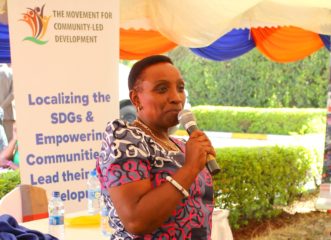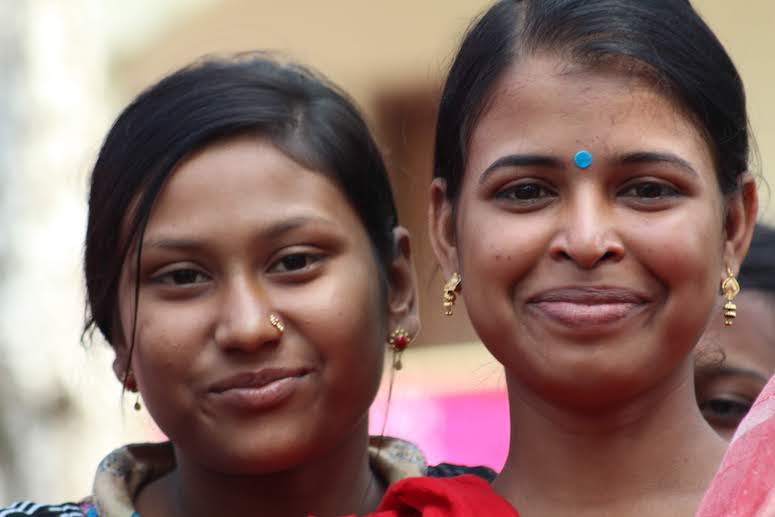“The connection between women’s human rights, gender equality, socioeconomic development and peace is increasingly apparent.”
Quote by Mahnaz Afkhami
On March 8, 2020, The Hunger Project will stand with people around the world to recognize International Women’s Day, a day that honors the achievements of women and girls everywhere and calls on our global community to take action for equality.
This year’s International Women’s Day theme is I am Generation Equality: Realizing Women’s Rights. It aligns with the UN Women’s Generation Equality campaign, celebrating the Beijing Declaration and Platform for Action, which is widely regarded as one of the most progressive roadmaps for the empowerment of girls and women.
When women are empowered, all of society benefits. Their families are healthier, birth rates, childhood malnutrition and child mortality are reduced. More children go to school, including girls, agricultural productivity improves, and income increases.
While there is a growing awareness of the inequalities around the world, in 2020 we are still yet to name a single country that has achieved gender equality. Challenges women face include being undervalued, working longer hours and being paid less, having fewer choices, experiencing violence at home and in public spaces. Many of these could be greatly lessened by shifting laws and cultural norms. Even today, the threat of rolling back women’s rights remains present.
Women often bear the responsibility for meeting basic needs of the family, yet are systematically denied the resources, information and freedom of action they need to fulfill this responsibility. The subjugation, marginalization and disempowerment of women is the main cause of the remaining hunger in the world. It is for this reason, that the empowerment of women is The Hunger Project’s highest priority.
This year, join us in standing with women and girls everywhere as they push for equal rights and in doing so, create a brighter, better world.
What We Do

As Secretariat of the Movement for Community-led Development (CLD),we leverage partnerships with like-minded organizations around the world to take community-led development to “transformative scale” – beyond small projects, to a level that transforms society.
In India, The Hunger Project builds leadership skills among women who have been systematically denied information, freedom of motion and a voice in decision making. We support empowering the women electorate, encouraging voter participation among women and the election of women leaders to all panchayat (village council) seats.
At our epicenters across Africa, tens of thousands of women food farmers are increasing their incomes and strengthening their clout in the marketplace through our Microfinance Program, training, credit and savings program. Our Women’s Empowerment Program throughout Africa and specialized animator trainings worldwide empower women to seek positions of leadership and train all of our partners, women and men, to take responsibility for improving lives in their communities.
In Mexico, The Hunger Project works with isolated and marginalized communities, and the first step is always to engage in Vision, Commitment and Action Workshops to overcome mindsets of resignation and gender inequality in these areas where women face the double discrimination of being women and indigenous.
In Bangladesh, programs like our Safe School for Girls Campaign empowers students, teachers, parents and local communities to stop child marriages and promote opportunities for girls. Since the program’s launch, more than 25,000 people have been trained in Safe School for Girls workshops.
And, to support us achieving the most impact possible, our Women’s Empowerment Index is designed to measure progress in the multi-dimensional aspects of women’s empowerment, which better informs and improves empowerment programs.
Learn More
- Our Approach: Empowering Women as Key Change Agents
- UN Women: International Women’s Day 2020
- Sustainable Development Goal 1.3: Ending Poverty in All its Forms Everywhere by Implementing Social Protection Systems
- UN Commission on the Status of Women 64 — Cancelled in light of the current concerns regarding coronavirus disease (COVID-19)

